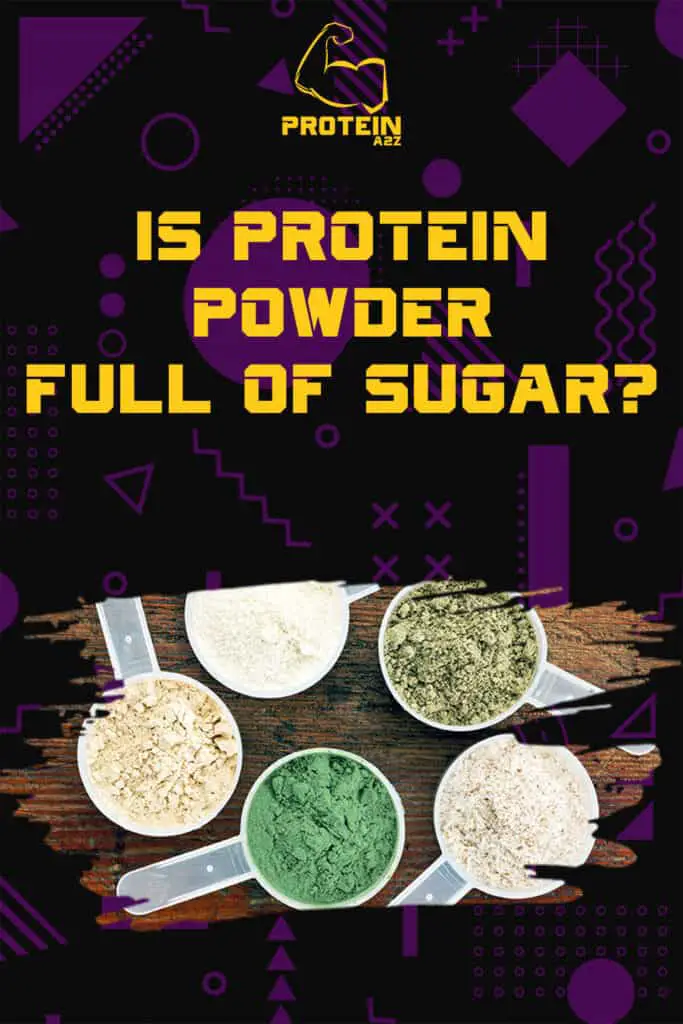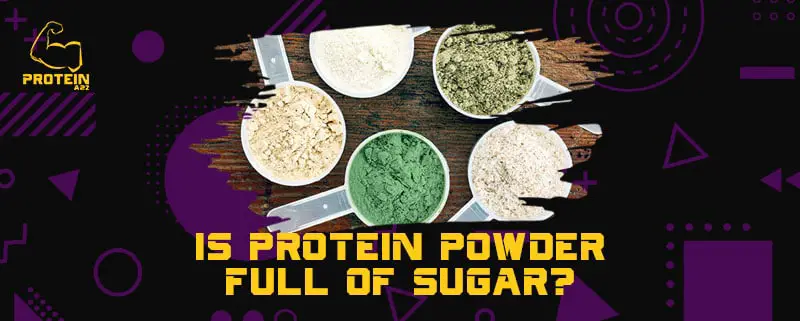We all know that protein powder is a great supplement to build muscle and recover from tiresome workouts. But what else besides protein does it contain? Is it full of sugar and can it be harmful?
Table of Contents
How much sugar do protein powder have?
Most protein powders have some sugar in them to make them more palatable. Good quality brands of protein powder usually have very low amounts, around 2 grams per scoop, but some budget-priced brands can have up to 20 grams of sugar per scoop.
Are there any risks in drinking protein powder?
Usually, premium brand protein powders offer protein whey isolate powder that has a high quantity of dehydrated protein and low amounts of sugar and fat (1-2 grams of sugar). And protein isn’t harmful to the body unless it makes up a higher quantity than 30% of the body’s daily calorie intake.
One of the most common issues protein powder presents is people actually forgetting that it is a dietary supplement and should not be used as a substitute for food. There have been numerous studies throughout the years to determine the effects of whey protein on athletes and how much is actually needed for the body to thrive.
Some cheaper protein powders, however, may be high in toxins and simple sugars as much as 20 grams per scoop. Which can spike blood sugar levels for some people and cause body disbalances.
Take a look at our favorite egg protein powders.
Why are some protein powders high in sugar?
There are some manufacturing companies that add a lot of sugar in their products, simply because sugar tastes good and is a very addictive ingredient to the human body and mind. Raw protein’s taste is more unpleasant and might drive customers away.
On the other hand, a small amount of sugar in a protein scoop can even prove useful and healthy. According to a 2010 study, sugar intake during or after exercise maintains the body’s glucose levels in the blood and glycogen in the muscle, which results in an overall better workout session.
Long story short, premium brands of whey protein add 1-3 grams of sugar per scoop to make sure the protein shake tastes great and is more efficient for consumption post-workout.
Too much sugar can encourage fat storage instead of muscle growth and weight loss, and moreover it increases the insulin in your body, making you less likely to burn sugar as energy in future workouts.
- The best protein powder without sugar
- Adding protein powder to your muffins
- Replacing cocoa powder with protein powder
FAQs about sugar in protein powder
Are protein powders that contain sugar bad?
Almost all protein powders contain some amount of sugar. While premium brands contain 1-3 grams per scoop, cheaper versions can have as much as 20 grams, depending on the dosage. Small amounts of sugar can benefit the body post or during a workout. Whereas larger amounts of sugar definitely do not work to your advantage.
How much sugar per day is it safe to consume?
The maximum amount of added sugar daily intake according to the American Heart Association should be around 37.5 grams for an average male and 25 grams for the average female. Blood sugar levels should be balanced and consuming added sugar is optimal to break 12-hour fasting or after working out.
Do you need sugar to live?
Although sugar is the first energy source that our bodies resort to, it isn’t necessary to survive. Simple sugars break down faster than fat and protein. Eating a lot of added, or refined sugars might be very bad for us – leading to dizziness, low energy levels and headaches. Cutting sugar out of a diet often leads to increased energy.

User comment about sugar and protein powder
Is Protein Powder Full Of Sugar?
Many people are not sure if the amount of sugar in protein powder is too much or not. If you are trying to lose weight and want to do so by eating healthier, then you will want to consider changing your protein consumption and replacing it with a diet that includes more fruits, vegetables, and even whole grains.
In order to do this, you will need to add some more protein to your diet, but it does not have to be as high as you may think. When you add protein to your diet, you will not only get the nutrients that you need but also increase your metabolism and burn more calories.
This extra sugar in protein will not only slow you down when you are trying to lose weight but also cause you to feel bloated and lethargic. You might feel hungry but you will not eat anything, this is because you are not using the energy that was previously used to digest the excess sugar from protein.
Protein powder with added sweetener – not sugar
There are many companies that sell products that have added some type of sweetener to their protein powders, these are not bad products, but they are also a part of your diet. When you add sugar to your diet you will gain weight, so why add extra sugar to a product that can help you lose weight? If you find that your protein shakes or bars taste good but the taste is not what you like about it, then you will not want to continue to consume it.
Protein bars can also contain extra sugar, so it is important that you only buy those that are certified to be sugar free. If you do not feel that your protein shakes or bars are the right option for you, then you should consider other forms of protein.
You may want to purchase protein shakes at a local grocery store and add them to your own bodybuilding diet, you may even decide to take them with your meals at home. By following this method you can still benefit from protein and still lose weight at the same time.

